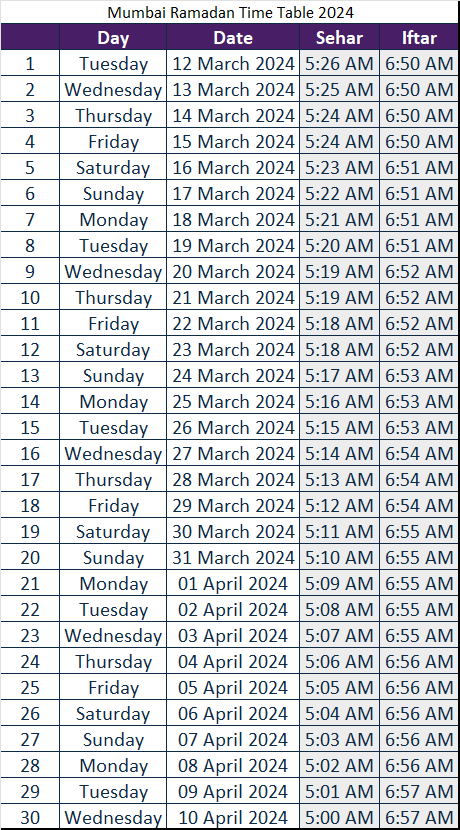Sarkashi Ke Liye Na Kaji Ke Liye
Khudsari Ke Liye Na Badi Ke Liye
Khusrawi Ke Liye Na Khudi Ke Liye
Zindagi Ye Nahi.N Hai Kisi Ke Liye
Zindagi Hai Nabi Ki Nabi Ke Liye
Wallah ! Wallah ! Wallah !
Wallah ! Wallah ! Wallah !
Bul-Hawas Na Samjh Hai.N Zari Ke Liye
Ham Hai.N Sarkaar Ki Bandagi Ke Liye
Baa-Khuda Ji Rahe Hai.N Isi Ke Liye
Na Samajh Marte Hai.N Zindagi Ke Liye
Jeena Marna Hai Sab Kuchh Nabi Ke Liye
Wallah ! Wallah ! Wallah !
Wallah ! Wallah ! Wallah !
Aakhirat Hai Faqat Muttaqi Ke Liye
Dahr Ki Teeragi Hai Sabhi Ke Liye
Na Pareshaan Ho Chaandni Ke Liye
Chaandni Chaar Din Hai Sabhi Ke Liye
Hai Sada Chaand 'Abdunnabi Ke Liye
Wallah ! Wallah ! Wallah !
Wallah ! Wallah ! Wallah !
Momin-O-Paarsa Aur Taahir Bhi Hai.N
Muflis-O-Naa-Tawaa.N Aur Qaadir Bhi Hai.N
Rahmat-E-Mustafa Se Ye Zaahir Bhi Hai.N
Anta Fee-Him Ke Daaman Me.N Munkir Bhi Hai.N
Ham Rahe 'Ishrat-E-Daaimi Ke Liye
Wallah ! Wallah ! Wallah !
Wallah ! Wallah ! Wallah !
Kat Gai Raat Aur Ho Gaya Paar Din
Ho Ke Un Se Juda To Hai Bekaar Din
Aane Waala Hai Tum Par Bahut Baar Din
'Aish Kar Lo Yaha.N, Munkiro ! Chaar Din
Mar Ke Tarsoge Is Zindagi Ke Liye
Wallah ! Wallah ! Wallah !
Wallah ! Wallah ! Wallah !
Shukr Shaamil Hai Gar Aap Ke Sabr Me.N
Mustafa Ki Milegi Raza Ajr Me.N
Paaoge Baa-Khuda Phir Jinaa.N Hashr Me.N
Daag-E-'Ishq-E-Nabi Le Chalo Qabr Me.N
Hai Charaag-E-Lahad Raushani Ke Liye
Wallah ! Wallah ! Wallah !
Wallah ! Wallah ! Wallah !
Zer Hai.N Dushmanaan-E-Nabi Dekhiye
Har Taraf Hai Nishaan-E-Nabi Dekhiye
Aaiye 'Aashiqaan-E-Nabi Dekhiye
Naqsh-E-Paa-E-Sagaan-E-Nabi Dekhiye
Ye Pata Hai Bahut Rahbari Ke Liye
Wallah ! Wallah ! Wallah !
Wallah ! Wallah ! Wallah !
Ai Bareilly ! Teri Ye Qayaadat Rahe
Markaziyat Teri Taa-Qayaamat Rahe
Ya Khuda ! Is Du'aa Me.N Ijaabat Rahe
Maslak-E-Aa'la-Hazrat Salaamat Rahe
Ek Pehchaan Deen-E-Nabi Ke Liye
Wallah ! Wallah ! Wallah !
Wallah ! Wallah ! Wallah !
Tauq-E-Tahzeeb-E-Afrang Sab To.D Do
'Ishq-E-Sarkaar Me.N Tum Jiyo Aur Maro
Sunniyo ! Hukm-E-Taajushshari'aa Suno
Maslak-E-Aa'la-Hazrat Pe Qaaim Raho
Zindagi Di Gai Hai Isi Ke Liye
Wallah ! Wallah ! Wallah !
Wallah ! Wallah ! Wallah !
Sab Ko Haq Par Kahe Jo La'ee.N, Sunniyo !
Wo Hamaara Kabhi Bhi Nahi.N, Sunniyo !
Bhool Jaana Na Phir Tum Kahi.N, Sunniyo !
Sulh-E-Kulli Nabi Ka Nahi.N, Sunniyo !
Sunni Muslim Hai Sachcha Nabi Ke Liye
Wallah ! Wallah ! Wallah !
Wallah ! Wallah ! Wallah !
Ya Khuda ! Mujh Ko Par De Ke Parwaaz De
Mustafa Ki Gali Ka Koi Raaz De
Ya Mujhe Is Tarah Se Tu E'zaaz De
Wo Bulaate Hai.N Koi Ye Aawaaz De
Dam Me.N Jaa Pahunchu.N Mai.N Haazri Ke Liye
Wallah ! Wallah ! Wallah !
Wallah ! Wallah ! Wallah !
Meri Tishna Nazar Hai, Mere Mustafa !
Deed Ka Jaam Ab To Pilaao, Shaha !
Hai Yahi 'Arz Tujh Se Tu Jaa Kar Zara
Ai Naseem-E-Saba ! Un Se Keh De Zara
Muztarib Hai Gada Haazri Ke Liye
Wallah ! Wallah ! Wallah !
Wallah ! Wallah ! Wallah !
Chaand Me.N Tootne Ki Hai Phir Se Lalak
Maah-O-Akhtar Me.N Hai.N Un Ke Rukh Ki Jhalak
De Rahe Hai.N Sada Ye Sabhi Za-Falaq
Jin Ke Dil Me.N Hai 'Ishq-E-Nabi Ki Chamak
Wo Taraste Nahi.N Chaandni Ke Liye
Wallah ! Wallah ! Wallah !
Wallah ! Wallah ! Wallah !
Mustafa Dijiye Walwale 'Ishq Ke
Loot Lu.N Mai.N Bhi To Kuchh Maze 'Ishq Ke
Choonki Dekhe Hai.N Ye Falsafe 'Ishq Ke
Jin Ke Dil Me.N Hai.N Jalwe Tere 'Ishq Ke
Chashma-E-Noor Hai.N Raushni Ke Liye
Wallah ! Wallah ! Wallah !
Wallah ! Wallah ! Wallah !
Pa.Dh Rahe The Jo Paare Tere 'Ishq Ke
Cha.Dh Gae Rang Saare Tere 'Ishq Ke
Un Ko Haasil Hai.N Rishte Tere 'Ishq Ke
Jin Ke Dil Me.N Hai.N Jalwe Tere 'Ishq Ke
Wo Hai.N Najm-E-Zama.N Raushni Ke Liye
Wallah ! Wallah ! Wallah !
Wallah ! Wallah ! Wallah !
Dekh Kar Wo Janaaze Ka Manzar, Shaha !
Aap Ke Roz-O-Shab Ko Jab Is Ne Pa.Dha
Ayyub-E-Khasta Be-Sakhta Bol Utha
Akhtar-E-Qadri Khuld Me.N Chal Diya
Khuld Waa Hai Har Ik Qaadri Ke Liye
Wallah ! Wallah ! Wallah !
Wallah ! Wallah ! Wallah !
Kalam By: Mufti Akhtar Raza Khan Barelvi
Recited By: Sabir Raza Azhari Surat



.jpg)
.jpg)
.jpg)


















